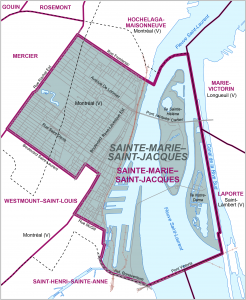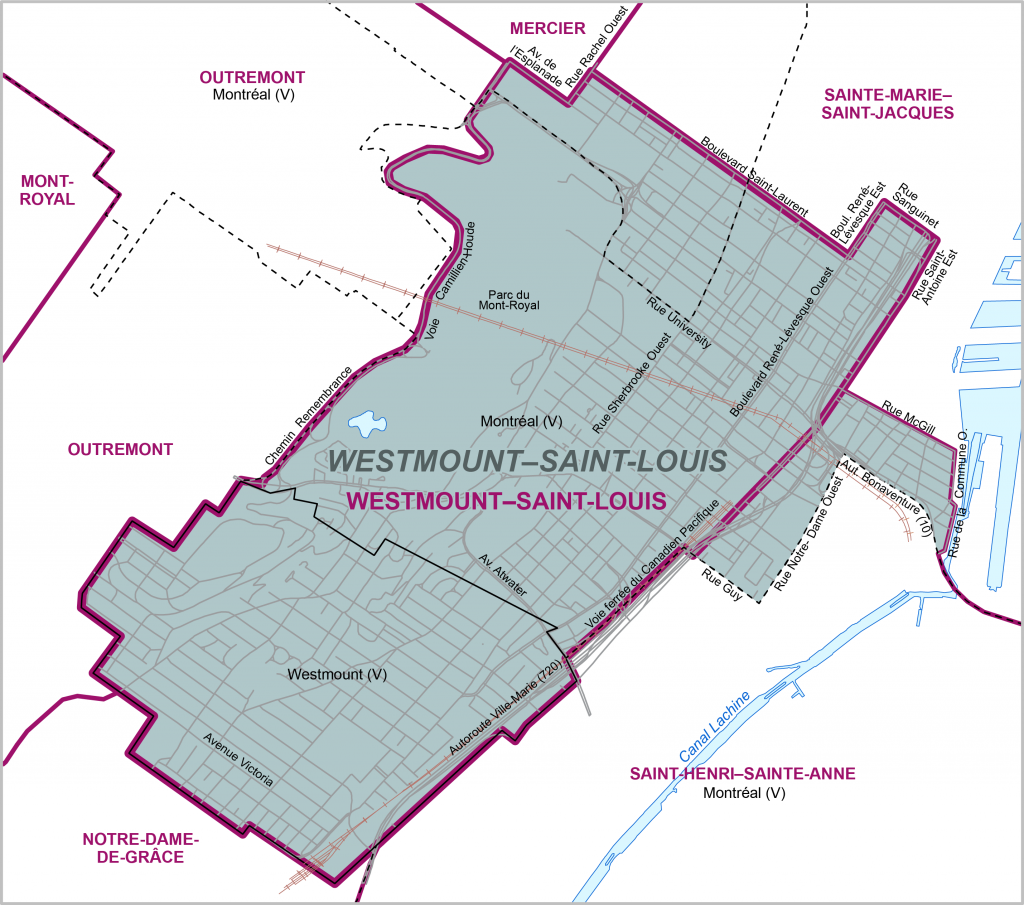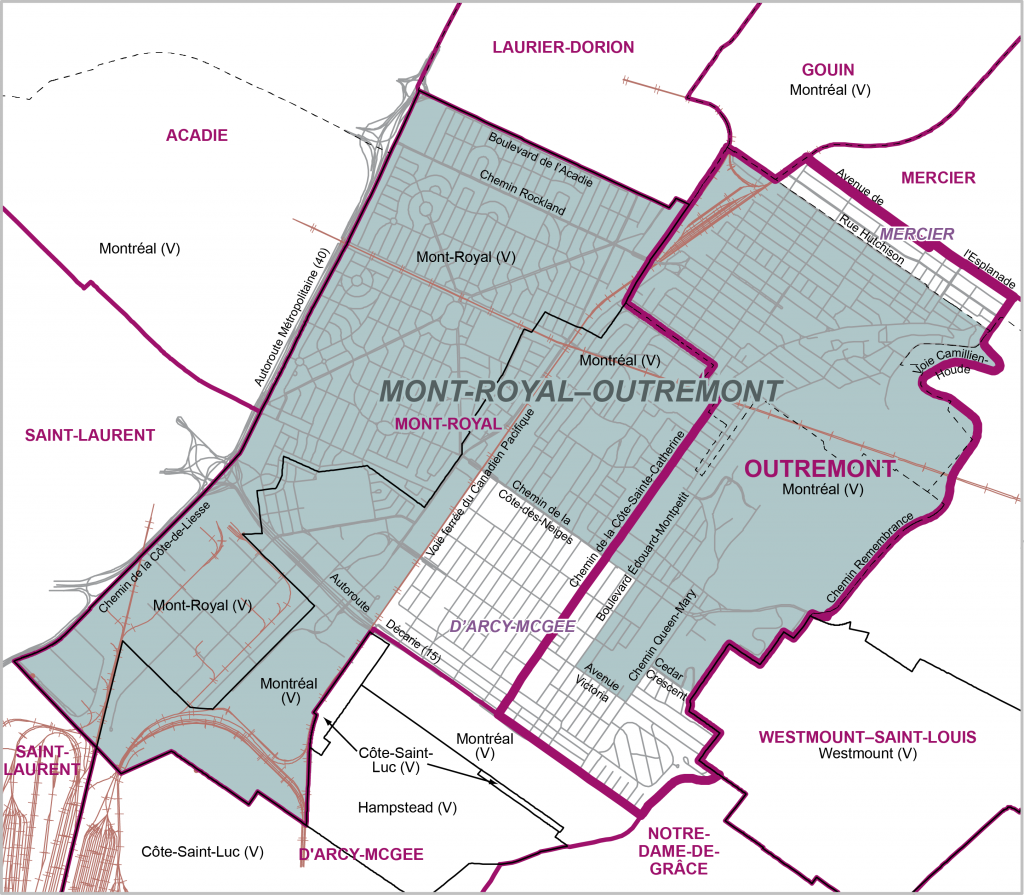This piece was submitted to the Citizen Journal project of the Peter-McGill Community Council. Please note that the opinions expressed in these articles do not necessarily reflect those of our organization. This project aims to create space for the voices of residents, students and friends of the neighbourhood through articles, photos, videos, and podcasts in any language. Are you interested in contributing? Contact us at benevolat@petermcgill.org!

Every ten years, a procedure called Federal Electoral Districts Redistribution is undertaken in order “to reflect changes and movements in Canada’s population.” (Redistribution of Federal Electoral Districts 2022, Élections Canada, 2022)
Basically, it means that the limits of the different ridings in each province may be rearranged to accommodate the demographic changes. In each province, independent commissions working separately, are proposing modifications to the current boundaries. After a consultation process, they may enact or modify their proposals.
However, if one takes the time to examine the changes the commission is proposing for the Ville-Marie-Le Sud-Ouest-Île-des-Soeurs riding, one will see that it is diluting the identity of its Ville-Marie segment. The map included in the Redistribution 2022 website shows how big chunks of Ville-Marie have now been removed and attached to other neighbourhoods. The whole area between Guy on the east, Sherbrooke on the north, Atwater on the west, and René-Levesque on the south, is now being transferred to the Westmount-NDG riding. Another extensive section bounded by Park Ave. On the east, the mountain on the north, the border with Westmount on the west, and Sherbrooke, rue de la Montagne, Dr. Penfield and Ave. des Pins on the south would now be located in the riding of Outremont.
Some might not be concerned about the transfer of those neighbourhoods to Westmount since our riding used to be called Westmount-Ville-Marie until a few years ago. It is a much different story for the proposed attachment of the northern part of Ville-Marie to the riding of Outremont considering that area has never had any connection with that other part of the city. Indeed, the mountain sits between the two neighbourhoods making it very difficult to visit the other side. Moreover, the commission, by making this proposal, is breaching two of their own criteria to organize and define the ridings: “Respect communities of interest or identity (for example, communities based around language or shared culture and history), (and) Respect historical patterns of previous electoral boundaries.” (Mapping Electoral Districts-Video Transcript, Élections Canada, 2022)
Even though the main criterion of the commission is to aim at the demographic equality of the ridings, neither Ville-Marie, Westmount, nor Outremont have experienced dramatic shifts in population. Then, there is no justification for this rearrangement of borders which, on the other hand, has very negative consequences and makes one doubt the intentions of this so-called independent commission.
Over the last few decades, Ville-Marie has experienced interesting cultural and ethnic diversification, supported by the influx of students and young immigrant families. This phenomenon has also given the western part of the downtown area a unique character. By removing these neighbourhoods from the riding, the possibility that people from those new communities have a greater presence in the political process, let alone be able to run in elections, is curtailed. The situation is even worse for those neighbourhoods that would now be transferred to Outremont according to the proposal. That riding, by contrast, is more homogenous. It also has a rather high-income population with no affinity at all, with the mostly middle-class, anglophone and allophone residents of the northern part of Ville-Marie.
Are the Quebec independent commission members trying to dilute the electoral presence and weight of ethnic communities in federal elections by reducing the diverse character of Ville-Marie?
But not only that. The whole character and identity of the Ville-Marie sector of our city are being watered down by this proposal, which I hope should be rectified for the benefit of democratic participation. Of course, it is crucial to exercise some pressure on the commission to get that result.
Since, by law, people have the right to have their say in this process, it is essential to participate in the consultation process. There will be two public hearings in Montreal, one on September 12 at 1 p.m. and another on September 13 at 9 a.m., both at the Intercontinental Hotel, 360 St. Antoine Street. There will also be two virtual hearings: on September 14 at 9 a.m. and October 13 at 9 a.m. For these hearings, it is necessary to register so that they can send you the link. Those interested in making their voice heard, please visit the website of Redistribution 2022.(https://redecoupage-redistribution-2022.ca/com/qc/phrg/index_e.aspx)



